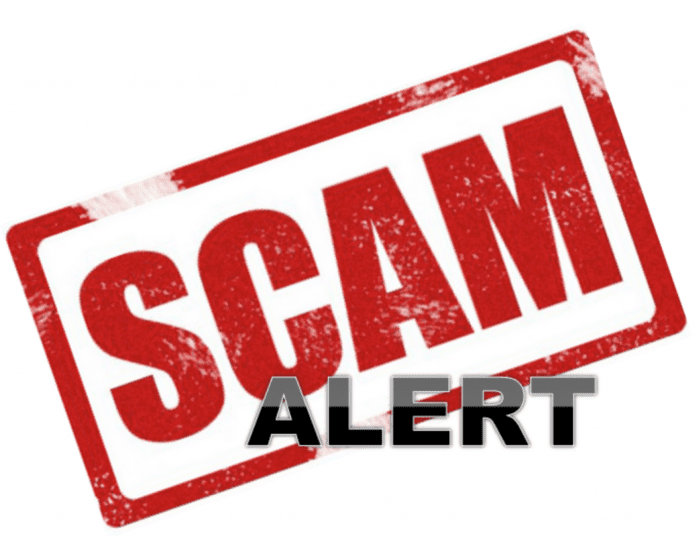As lockdown restrictions start to ease and we see the return of festivals, concerts and sporting events, people will be rushing to buy tickets to much missed events. However, it’s not just audiences that are looking forward to their return, fraudsters are also waiting in the wings. It is therefore easy to overlook online safety as people rush to purchase e-tickets to travel or to see their favourite team or band.
Do buyers have any legal recourse when it comes to purchasing counterfeit tickets, what are the risks when buying tickets from a third party and what is the best way to protect yourself from ticket scams?
Lauren Wolf, Legal Adviser at DAS Law, explains where the law stands on ticket scams…
How can I protect myself from ticket scams?
The best way to protect yourself from ticket scams is by contacting the event organiser in the first instance. They should either be able to supply tickets or direct you to authorised agencies, the official agents who have agreements with promoters or venues to sell tickets for events. Official ticket sellers are usually listed on the event’s official website.
When using websites to order tickets, it is important that you pay attention to the detail of the URL to make sure you are using a secure internet connection. The security of a website will be indicated by a padlock symbol, this means that usually the connection cannot be intercepted by a scammer or hacker.
Also, look closely at the content of the website for grammatical errors, spelling mistakes or broken English. If the page does not read well, there is a high chance that this is a scam website.
The Consumer Rights Act 2015 stipulates that certain information should be provided where a person resells a ticket for a recreational, sporting or cultural event in the United Kingdom through a secondary ticketing facility.
When purchasing a ticket through a tout or reselling site you should ensure that you are made aware of the following pieces of information:
- The face value of the ticket
- Where the ticket is, such as a particular seat or standing area at the venue for the event and the information necessary to enable you to identify that seat or standing area
- Information about any restriction(s) which limits use of the ticket to persons of a particular description
- details of connections they have with either the online facility on which they are selling, or the organiser of the event for which the ticket is being sold
- The unique ticket number (UTN) to a buyer if the event organiser specifies one.
Purchasing tickets with a credit or debit card should be considered because if you experience difficulty with a ticket seller you may be able to get a refund through your credit or debit card provider via a chargeback scheme or Section 75 of the Consumer Credit Act.
What is my legal position in claiming a refund if the event is cancelled?
If the event you have booked is cancelled, rescheduled or has changed location, you are entitled to a refund of at least the face value of the ticket. If an event is rescheduled to another date, your ticket should be valid. If you can’t make the rescheduled date, then you’re entitled to a full refund. The ticket seller is responsible for giving you a refund for tickets to a cancelled event.
If the company are a member of the industry’s self-regulatory body, the Society of Ticket Agents and Retailers (STAR), it is a condition that they refund the ticket’s face value price when an event is cancelled. It is, however, unlikely that you will receive additional compensation for losses such as travel or accommodation.
Do I have any recourse if I bought a ticket from a tout or a reselling website and was refused entry to an event?
You can be refused entry to an event if you have purchased a ticket from a tout or reselling website if the ticket states ‘no resale’ or is a counterfeit ticket. In these circumstances, you would argue a breach of contract against the seller to claim your costs back. I would recommend that you check the terms and conditions on your tickets or booking information provided for the event that you wanted to attend. If it is a genuine ticket and the reason for refusing you entry is not within the stated terms and conditions, you can argue the venue or organisers have broken the contract by denying you entry and you can potentially pursue them for a refund.
Are ticket touts still allowed to operate in the UK?
The general resale of football tickets is illegal under the Criminal Justice and Public Order Act 1994 unless the resale is authorised by the organiser of the match. However, the re-selling of live music tickets for profit is not against the law in the UK.
Professional touts have commonly used specialised software (known as ‘bots’) to automatically buy tickets in bulk the instant they are made available to the general public. These are then listed and sold for profit on reselling websites.
The Government has recently passed new legislation, in the form of the Digital Economy Act 2017, which bans touts from using ‘bots’ to buy tickets in bulk. This new legislation has made it a criminal offence to use automated technology to purchase large amounts of tickets to then be sold on at inflated prices.
Am I better protected if I buy tickets from a ticket reselling websites compared to ticket touts?
The best protection will be offered by purchasing tickets from a reseller authorised by the event organiser.
Can I use my legal expense insurance to make a claim against a seller if the tickets turned out to be fraudulent or not for re-sale?
Generally, legal expenses insurance will provide an element of cover for contract disputes. If you are sold tickets that turn out to be fraudulent or not for re-sale, you have may have an argument of breach of contract against the seller. If you fall victim to such a sale, we would recommend that you contact your legal expenses insurance provider to obtain advice and to explore your cover further.
Disclaimer: This information is for general guidance regarding rights and responsibilities and is not formal legal advice as no lawyer-client relationship has been created. Note that the information was accurate at the time of publication but laws may have since changed.
Help keep news FREE for our readers
Supporting your local community newspaper/online news outlet is crucial now more than ever. If you believe in independent journalism, then consider making a valuable contribution by making a one-time or monthly donation. We operate in rural areas where providing unbiased news can be challenging. Read More About Supporting The West Wales Chronicle
























